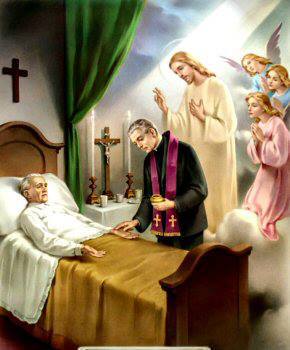Anointing of the Sick
He summoned the Twelve and began to send them out two by two…They anointed with oil many who were sick and cured them. (Mark 6:7, 13)
The Sacrament of the Anointing of the Sick gives strength and support and can be administered to anyone struggling with an illness.
How do I schedule Anointing of the Sick?
To arrange to receive the Anointing of the Sick from one of the priests at the Blue Hills Collaborative either for yourself or a loved one, please call the Collaborative offices at 857.342.9500 during normal business hours. Outside of business hours, please call the rectory at 617.364.9500. Please do not use the online form for this purpose.
Frequently Asked Questions about the Sacrament of Anointing of the Sick

